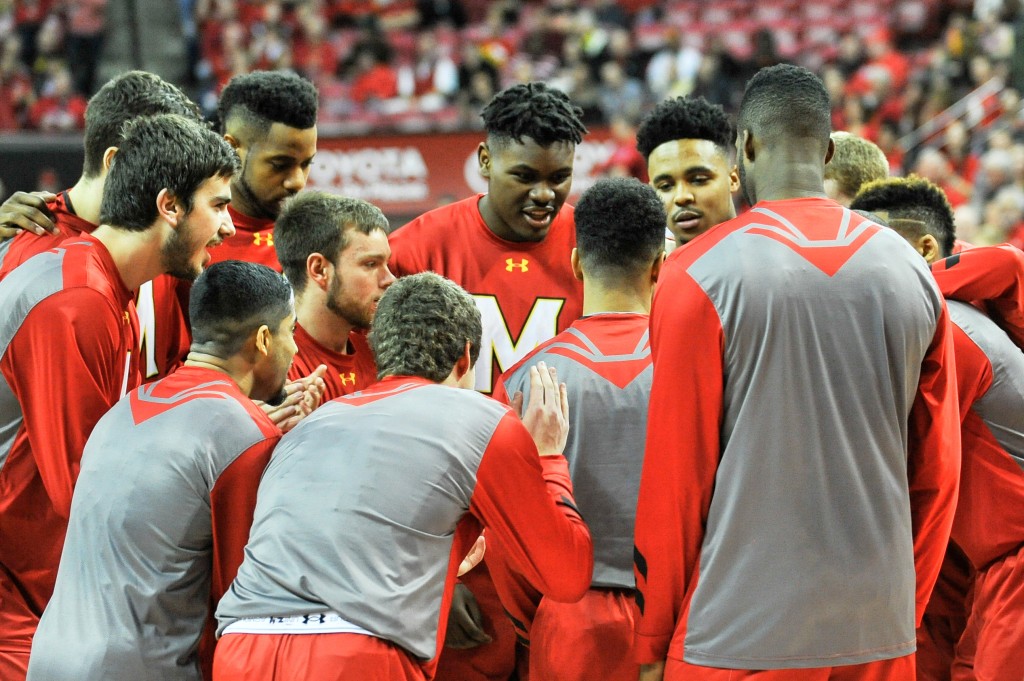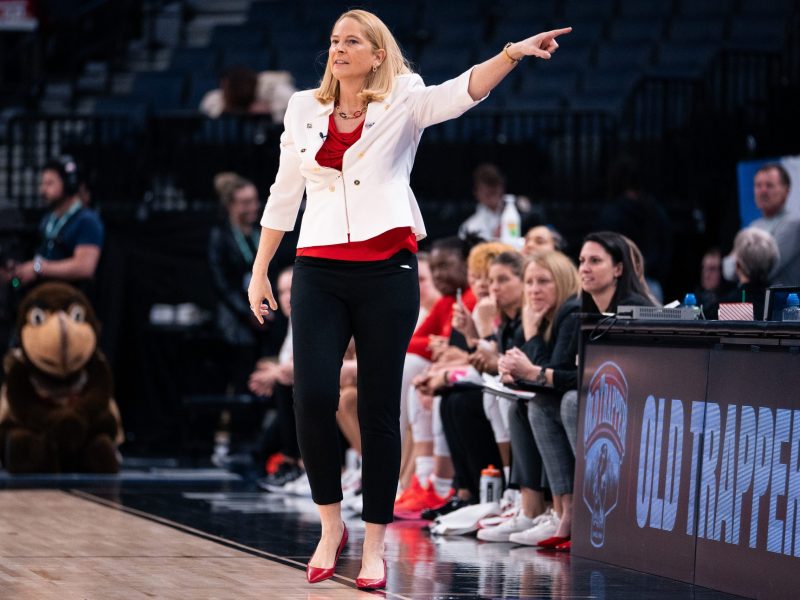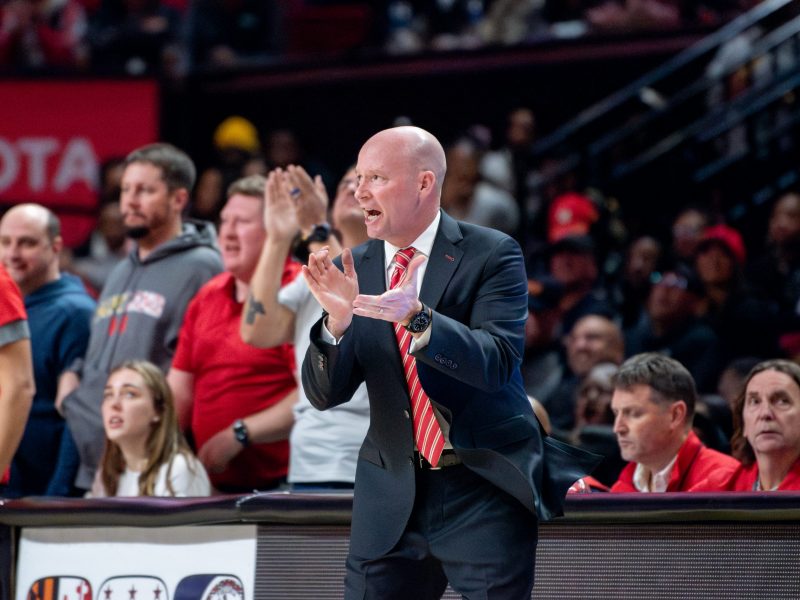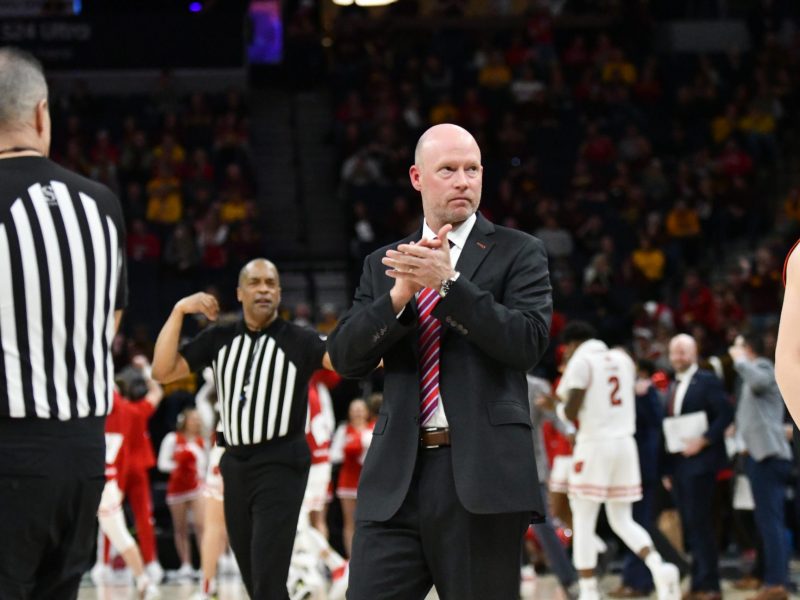WASHINGTON — When fans look back on how the Maryland men’s basketball team returned to prominence after former coach Gary Williams retired in 2011, they’ll start with what the Terps accomplished the past two seasons.
In Maryland’s first year in the Big Ten, former guard Dez Wells helped the new-look Terps achieve unexpected success, including a program-record 26 regular season wins and the team’s first NCAA Tournament appearance since 2010. Last year’s veteran-laden group, with the exception of then-freshman center Diamond Stone, fell short of its national championship aspirations but advanced to the Sweet 16, ending a 13-year drought.
At Big Ten media day Thursday afternoon, less than a month before Maryland’s season opener, coach Mark Turgeon and his players related this year’s team to that of two years ago. The Terps lost four starters last season, but they believe their veteran leaders and slew of newcomers can mesh together to sustain the program’s recent success.
“A lot of people don’t know who we have and they don’t know what to expect from us,” guard Melo Trimble said. “But I just know it’s going to be a good season.”
Trimble, a former McDonald’s All-American, was a freshman on the 2014-15 squad that finished 28-7 despite losing three starters from the year before.
The Upper Marlboro native was a large part of the Terps’ success, as the even-keeled point guard started all 35 games and led the team in scoring with 16.2 points per game. Then-freshman guards Dion Wiley and Jared Nickens also contributed off the bench.
Now juniors, the trio brings a wealth of experience to the Terps, who lost forward Jake Layman and guard Rasheed Sulaimon to graduation after last season. Center Stone and forward Robert Carter Jr. forwent their remaining college eligibility and entered the NBA Draft.
Trimble also declared for the professional ranks, but Turgeon had a feeling all along that his floor general wanted to stay in school. The sixth-year coach said Trimble has been “very happy” since making the decision to return to College Park.
“Probably the area he’s improved on the most is he’s just very comfortable being a leader,” Turgeon said. “He knows it’s his team in a lot of ways. So he’s very comfortable in his own skin right now, and he’s playing at a high level.”
As the team’s point guard, Trimble typically created his own opportunities. He pulled up for 3-pointers from the top of the key. He drove to the rim off ball screens, either finishing layups or getting to the foul line.
Turgeon said Trimble will be able to play more off the ball this season with the addition of freshman point guard Anthony Cowan Jr., last year’s All-Met Player of the Year by The Washington Post. The Bowie native was the No. 62 player in the Class of 2016 according to 247Sports, but Turgeon viewed Cowan as one of the best point guards coming out of high school.
He’s different from Trimble, Turgeon said. He can “get into” opposing players, using his speed to pressure the ball full court.
“Being 6-foot … he’s got a huge chip on his shoulder, and I love it,” Turgeon said. “He’s going to play a lot right way, and he’s going to help us tremendously.”
Trimble and forward Damonte Dodd will provide leadership for Cowan as well as the other five freshmen on the roster.
Of the first-year players, Turgeon expects guard Kevin Huerter and forward Justin Jackson will play significant minutes. In working with Huerter as an assistant coach on the U.S. U-18 national team, Turgeon said the Clifton Park, New York, native is one of the most consistent shooters he’s been around.
Turgeon said Jackson, a four-star recruit who originally committed to UNLV, will have the same type of role Layman had last season when he played the stretch four position.
Despite having these new players — the Terps also added forward L.G. Gill, a graduate transfer from Duquesne — Trimble said the team, at this point, is farther along than its been during his first two seasons.
It’s a tribute to players like Trimble and Dodd, who are teaching the youngsters what they learned two years prior.
“Now they’re learning,” Dodd said. “And like I said, they’re fast learners.”



